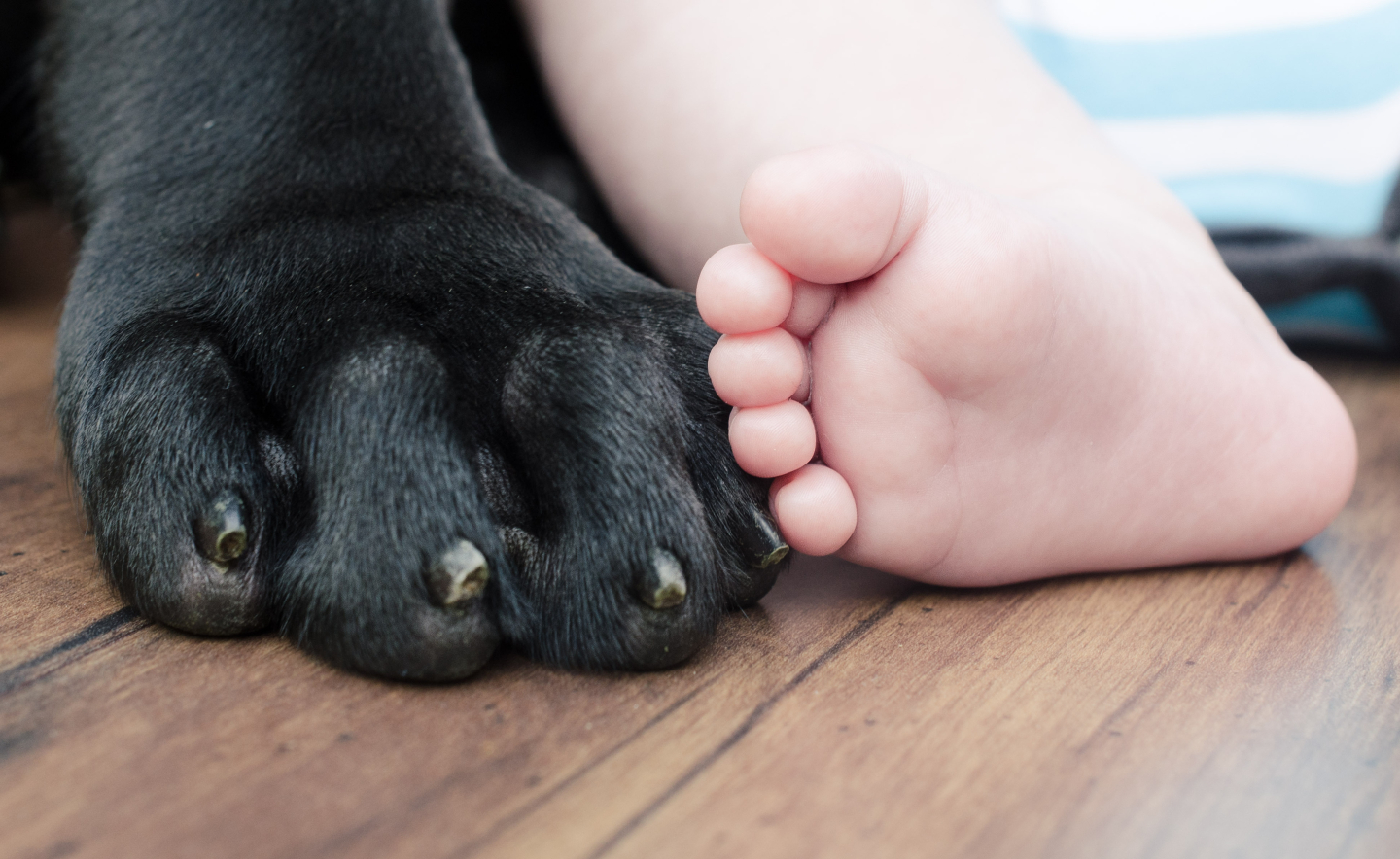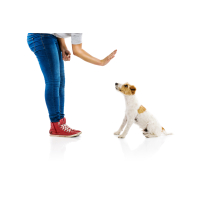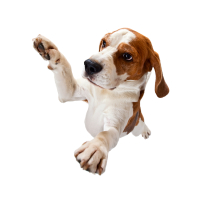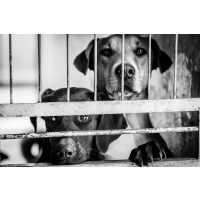Expecting a baby?

Before baby's arrival
Bringing a baby into the home can be especially challenging when you have a pet. Once the object of your affection, a dog can be deeply unsettled by the arrival of a new-born who represents competition for your affections.
Preparation is key. Here are some useful suggestions:
Start making changes in your dog’s routine at least 4-6 months before the baby is due to arrive.
Change your routine – this means everything from the time of walks to feeding times.
Try scatter feeding outside in the garden. Your dog should not see their bowl as the only food source. This helps prevent your dog from getting defensive if your baby goes near its food bowl.
Stop hand feeding your dog otherwise your dog may try to take food from your baby’s hand.
Stop any excessive jumping well before the baby arrives.
Think about stopping any excessive barking. You will want your baby to sleep and not be wakened by your dog barking at every visitor!
Stop your dog pulling on the lead… remember you are going to have to walk your dog AND a pram.
Boundaries to set:
- Ignore your dog at times and particularly – don’t respond to their attention-seeking behaviours. They definitely won’t have your attention when you have a baby to look after!
- Praise and make a fuss of your dog when he/she isn’t making a noise or demanding anything.
- Always instigate play on your terms – if your dog wants to play then don’t indulge him/her.
- Set boundaries – places like sofas and beds should be off limits to your dog. You probably won’t want them jumping around places where your baby might be.
- Let the whole family know the rules and stick to them.
- Invest in a crate or pen. This will provide a comfortable place for your dog to sleep in and retreat to. This is especially useful in the first few months when you’ll have a steady flow of visitors, as the increase in activity can overwhelm many dogs.
- Secure the garden so your dog can happily play in the garden when you have to deal with the baby.
The New Arrival
New arrivals can often cause your dog to feel confused or stressed. In context of the ‘pack’, your dog may feel as if he/she has lost its position in the hierarchy. Suddenly the dog, which was the centre of everyone’s attention, now is ignored much more. That is why it is preferable and kinder to change your dog’s routine months before the baby arrives. Attention seeking behaviours include: -
- stealing baby items
- jumping up
- barking when the baby cries
- entering the baby’s room unattended or
- nudging/jumping up when the baby is getting fed
This behaviour should be nipped in the bud as soon as it starts.
Where will your dog sleep?
Ensure that any changes to sleeping arrangements are implemented prior to the baby’s arrival in order to give your dog time to adjust. A young or excitable dog sleeping close to where your baby is sleeping could present a potential danger to a newborn.
Providing a sleeping crate for your dog is something that the vast majority of dogs learn to enjoy. They love the dark and cosy safety of their crate. Make sure it’s introduced early on and give them time to adjust (especially if he/she is used to sleeping closer to you or on the bed etc). However, it’s important to note that your dog shouldn’t be left in crate for too many hours at a time unless it is overnight and you are in the house. If you have a more nervous dog or one that is overly boisterous, the use of a crate during the early weeks and months when the house is noisy and busy can provide a safe haven for the dog and respite for a new mum.
Preparation for the baby’s arrival
- Implementing Change – Ensure that you know what changes you’re going to introduce to the dog’s routine long before the baby is due to arrive. Changes should be implemented no later than the 8th month (if possible, well before this) and all family members should be aware of what these are as dogs need consistency from all adults in the house. Introduce the boundaries eg. where you want your dog to sleep and where he/she can now go in the house.
- Back to Basics – taking time out to work with your dog in regard to training is essential. Up to a month prior to the baby’s arrival, take at least 15 minutes a day to focus on what you want your dog to be aware of eg. door manners, (not rushing through the door in front of you) Basic obedience (e.g. Sit, Stay, Wait etc…) Good lead work (essential if you are going to walk your dog alongside the pram) No jumping up (essential if carrying a new baby but also when you are having lots of health, family and friends around to visit)
- Routine Changes – a new baby can cause major changes to the daily routine. Feeding and walking times will doubtlessly be affected as your focus is more on your new baby. Ensure you have plenty of toys to keep your dog entertained (digging pits in a secure garden or scattered toys would be ideal). A high-quality diet that is low in carbohydrates is thought to have a calming influence on dogs. If you’re concerned about your dog not getting enough exercise, then it might be an idea to arrange a dog walker if you feel you don’t have the time.
- Scents, Sights and Sounds – adjusting your dog to the new scents and sounds of a baby is simple and effective in regard to implementing this big change! Often dogs can be unsettled by crying noises and may bark/jump up as they think something is wrong. Purchasing a doll that laughs/cries like a baby is a simple way to introduce your newborn before it arrives. Wrap it in a blanket and carry it around the house – correct your dog if he/she shows any of the attention seeking behaviours. Alternatively, you could play a recording of a baby crying to allow your dog to adjust to the noise. With scent, a baby’s blanket that has been cut into pieces can be of use. Each clean piece is placed under where the baby sleeps and then placed in the dog’s crate or bed, getting your dog familiar with the scent.
Baby's Arrival
- Arrival – Ideally have someone else carry the baby into the house.
- Remember… to your dog the size of his pack has just increased. To him the baby is like a new puppy arriving.
- The vast majority of dogs accept a new baby easily BUT your dog is not a little human and has canine instincts.
- NEVER bend down and let the dog sniff the baby
- NEVER leave a baby and dog unattended
- The shrill cry of a baby can over-excite a dog. Be ready to correct any unwanted behaviour.
- When you sit down with the baby make sure your dog is kept on the ground.
- This is not a time to have your dog up on the sofa with you.
- Introduce the two – proceed with caution and be wary of how your dog might act.




